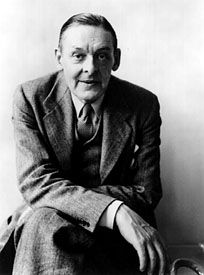Old Deuteronomy
Old Deuteronomy's lived a long time;
He's a Cat who has lived many lives in succession.
He was famous in proverb and famous in rhyme
A long while before Queen Victoria's accession.
Old Deuteronomy's buried nine wives
And more—I am tempted to say, ninety-nine;
And his numerous progeny prospers and thrives
And the village is proud of him in his decline.
At the sight of that placid and bland physiognomy,
When he sits in the sun on the vicarage wall,
The Oldest Inhabitant croaks: "Well, of all . . .
Things. . . Can it be . . . really! . . . No!. . . Yes!. . .
Ho! hi!
Oh, my eye!
My mind may be wandering, but I confess
I believe it is Old Deuteronomy!"
Old Deuteronomy sits in the street,
He sits in the High Street on market day;
The bullocks may bellow, the sheep they may bleat,
But the dogs and the herdsmen will turn them away.
The cars and the lorries run over the kerb,
And the villagers put up a notice: ROAD CLOSED—
So that nothing untoward may chance to distrub
Deuteronomy's rest when he feels so disposed
Or when he's engaged in domestic economy:
And the Oldest Inhabitant croaks: "Well, of all . . .
Things. . . Can it be . . . really! . . . No!. . . Yes!. . .
Ho! hi!
Oh, my eye!
My sight's unreliable, but I can guess
That the cause of the trouble is Old Deuteronomy!"
Old Deuteronomy lies on the floor
Of the Fox and French Horn for his afternoon sleep;
And when the men say: "There's just time for one more,"
Then the landlady from her back parlour will peep
And say: "New then, out you go, by the back door,
For Old Deuteronomy mustn't be woken—
I'll have the police if there's any uproar"—
And out they all shuffle, without a word spoken.
The digestive repose of that feline's gastronomy
Must never be broken, whatever befall:
And the Oldest Inhabitant croaks: "Well, of all . . .
Things. . . Can it be . . . really! . . . No!. . . Yes!. . .
Ho! hi!
Oh, my eye!
My legs may be tottery, I must go slow
And be careful of Old Deuteronomy!"
Of the awefull battle of the Pekes and the Pollicles:
together with some account of the participation of the
Pugs and the Poms, and the intervention of the Great Rumpuscat
The Pekes and the Pollicles, everyone knows,
Are proud and implacable passionate foes;
It is always the same, wherever one goes.
And the Pugs and the Poms, although most people say
That they do not like fighting, yet once in a way,
They will now and again join in to the fray
And they
Bark bark bark bark
Bark bark BARK BARK
Until you can hear them all over the Park.
Now on the occasion of which I shall speak
Almost nothing had happened for nearly a week
(And that's a long time for a Pol or a Peke).
The big Police Dog was away from his beat—
I don't know the reason, but most people think
He'd slipped into the Wellington Arms for a drink—
And no one at all was about on the street
When a Peke and a Pollicle happened to meet.
They did not advance, or exactly retreat,
But they glared at each other, and scraped their hind feet,
And they started to
Bark bark bark bark
Bark bark BARK BARK
Until you can hear them all over the Park.
Now the Peke, although people may say what they please,
Is no British Dog, but a Heathen Chinese.
And so all the Pekes, when they heard the uproar,
Some came to the window, some came to the door;
There were surely a dozen, more likely a score.
And together they started to grumble and wheeze
In their huffery-snuffery Heathen Chinese.
But a terrible din is what Pollicles like,
For your Pollicle Dog is a dour Yorkshire tyke,
And his braw Scottish cousins are snappers and biters,
And every dog-jack of them notable fighters;
And so they stepped out, with their pipers in order,
Playing When the Blue Bonnets Came Over the Border.
Then the Pugs and the Poms held no longer aloof,
But some from the balcony, some from the roof,
Joined in
To the din
With a
Bark bark bark bark
Bark bark BARK BARK
Until you can hear them all over the Park.
Now when these bold heroes together assembled,
That traffic all stopped, and the Underground trembled,
And some of the neighbours were so much afraid
That they started to ring up the Fire Brigade.
When suddenly, up from a small basement flat,
Why who should stalk out but the GREAT RUMPUSCAT.
His eyes were like fireballs fearfully blazing,
He gave a great yawn, and his jaws were amazing;
And when he looked out through the bars of the area,
You never saw anything fiercer or hairier.
And what with the glare of his eyes and his yawning,
The Pekes and the Pollicles quickly took warning.
He looked at the sky and he gave a great leap—
And they every last one of them scattered like sheep.
And when the Police Dog returned to his beat,
There wasn't a single one left in the street.
